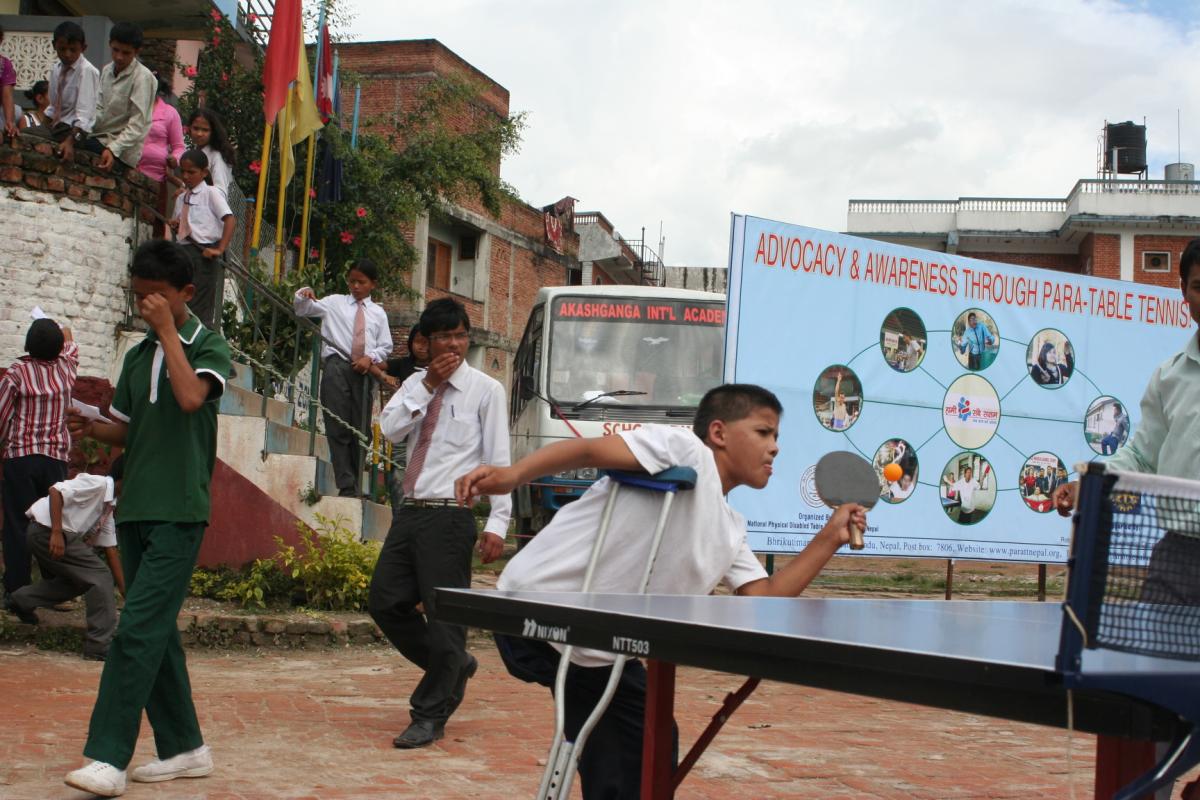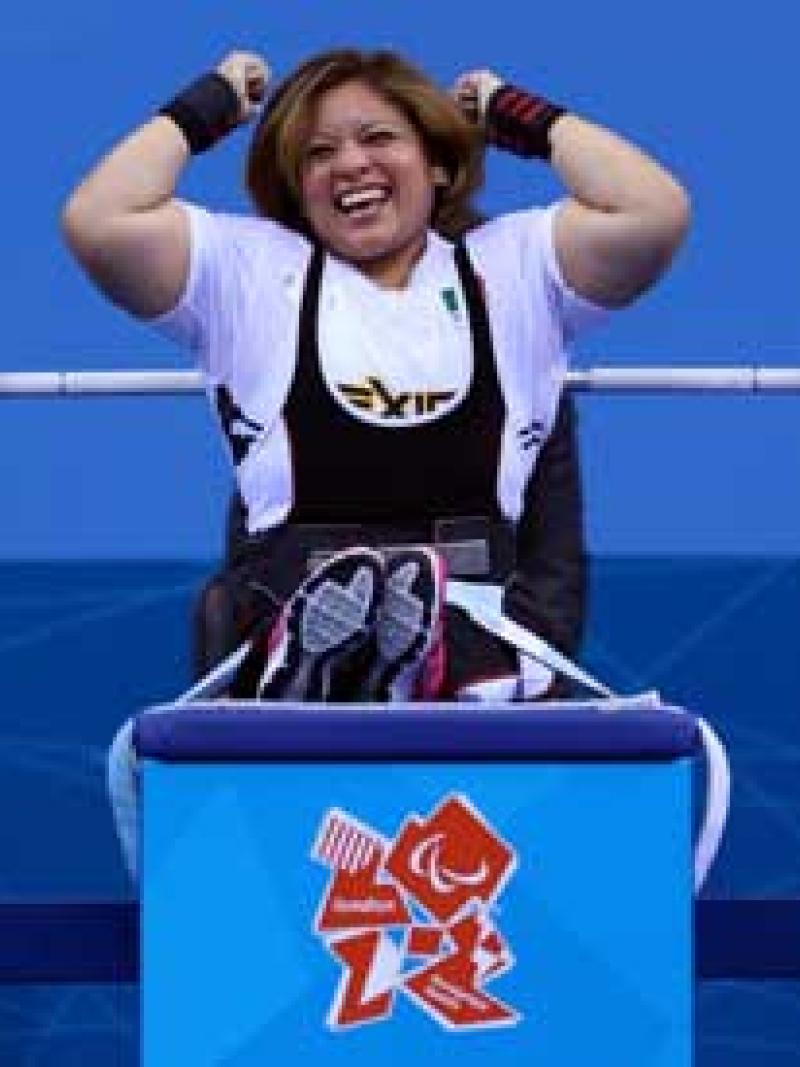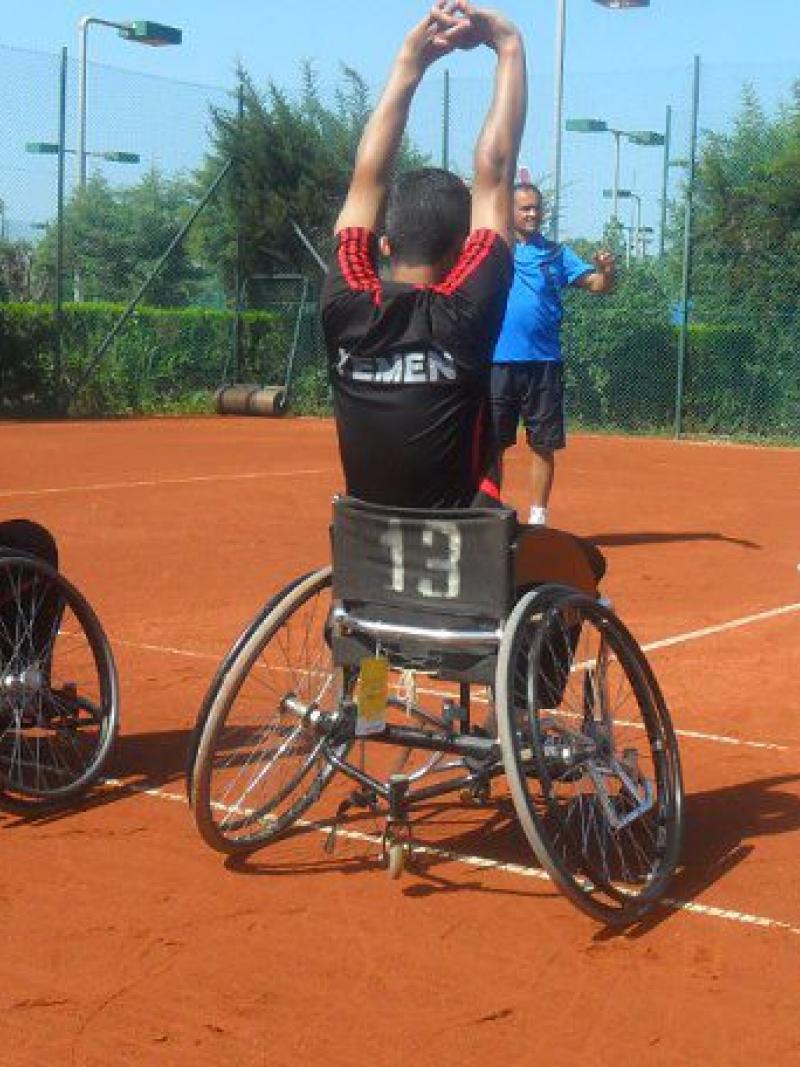Para-table tennis bridges social gaps in Nepal
ChangeMakers: One Nepalese citizen decided to use para-table tennis as way of raising awareness of para-sport and impairments through a new national association. 30 Mar 2014
A newly estabalished para-table tennis association in Nepal has provided people with impairments opportunities to play sport and raise awareness of para-sport at the same time.
We hope in the near future we will be the one of the brightest, the strongest and most creative sporting organisations of Nepal within the Paralympic Movement, which does not only focus on competitive sport but also acts as an agent of change in society through the power of sport.
What an amazing feeling! Lots of students turned out to support my first table tennis competition.
For them a friend sitting in wheelchair playing a very tough game with their able bodied counterpart was something amazing. At that time I used to think there is nothing that I can't do and achieve. Finally my achievement as the first wheelchair using player in Nepal was something great that I got through the power of sport.
However, it took long time to understand the real strength of sport. In college I found it was sport that acted as a bridge to connect me to the rest of college environment. In my college life I was using it without even realising the power behind it.
Afterwards I decided to establish a sport organisation to bridge the gap between people with impairments and society.
As a result a non-profit sport organisation named the National Physical Disabled Table Tennis Association-Nepal (NPDTTAN) was born, with the aim of introducing & popularising table tennis by using it as a tool for advocacy, awareness and competition for people with impairments.
As part of this campaign we often organise events in school and colleges with able-bodied students. This has not only helped to promote the sporting activities of people with impairments but also has helped a lot in raising awareness about impairment issues from an early age.
Hiring and inviting professional coaches is also the part of what we do which does not only provide the chance to train, but we also use it as an opportunity to educate them about the broader perspective of disability sport and potential to change society.
We know that sustainability of grass-root activities is a challenge. We believe that for this campaign to be a success, government support is very important. As a result we have already approached the Ministry of Youth and Sport which provide small grants every year to continue our work.
Besides this our activities have already expanded to other important organisations who share the same values and interests. Rotary International, SOS Children's Village Nepal, Danish Sport Organisation of Disabled People (DSOD) are some we have already worked with.
We hope in the near future we will be the one of the brightest, the strongest and most creative sporting organisations of Nepal within the Paralympic Movement, which does not only focus on competitive sport but also acts as an agent of change in society through the power of sport.
We are confident in our mission!
To mark the United Nations International Day of Sport for Development and Peace, the development arm of the IPC, the Agitos Foundation, is publishing stories where sport has helped to change lives or societies as part of the ChangeMakers campaign.
From 30 March until 13 April, stories will be posted on Paralympic.org and on the Agitos Foundation’s newly launched Facebook and Twitter pages.
Like or follow them to keep up to date with the latest news on the development of para-sport.

 Facebook
Facebook
 Instagram
Instagram
 Twitter
Twitter
 Youtube
Youtube
 TikTok
TikTok
 Newsletter Subscribe
Newsletter Subscribe



